Best Scuba Diving in Japan: 5 of the Top Dive Sites
Explore 1,864mi (3,000km) of Japan's coastline with scuba expert Chris Willson. He takes us from the underwater wrecks near Tokyo, to the Bonin Islands (Japan's "Galapagos"), to sunny Okinawa in the far south.
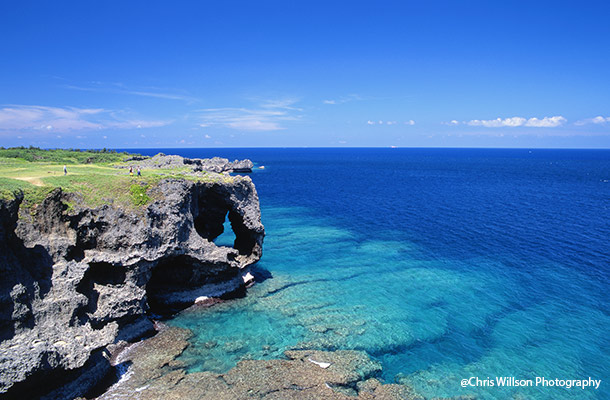 Photo © Chris Willson Photography
Photo © Chris Willson Photography
Karate, judo, and even sumo may be what comes to mind when thinking about Japanese sports, but many forget that as a nation of islands, water sports are just as popular. From wrecks near Tokyo, to manta, turtle and whale encounters in sunny Okinawa, the varied coastline provides plenty of amazing scuba diving and snorkeling possibilities.
Izu Peninsula Diving
A few hours from Tokyo by car or train will get you to the Izu Peninsula. On the east coast, there are numerous dive locations with good numbers of fish, caves, and some wreck diving.
Visibility is reasonable at approximately 33-66ft (10-20m), but the water can be cool. Most divers wear 5mm wetsuits from July to October, and dry suits in the winter.
The islands of Oshima and Hachiojima are popular weekend destinations too. Many Tokyoites take the overnight ferries on Friday evening, dive Saturday and Sunday morning, then jump on the afternoon ferry back to the modern world. Hachiojima in particular is famous for its turtles.
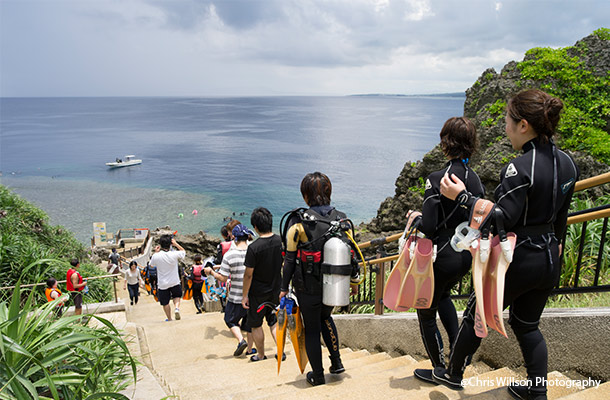
Bonin Islands Diving
The Bonin Islands, also known as the Ogasawaras, are sometimes referred to as Japan’s Galapagos because their isolation has caused local species to evolve in unique ways.
The islands are only accessible by ferries that run once or twice a week, and the journey is both long (around 24h) and expensive (around ¥35,000 or US$240 each way). However, this does mean that visitor numbers are limited and it helps preserve the island’s plentiful and often endemic flora and fauna.
Visibility here is good – normally up to 130ft (40m) – and the local waters are filled with tuna, stingrays and dolphins. There’s a reason divers describe the water's color as “Bonin blue”.
Ryukyu Islands Diving
The Ryukyu Islands were once an independent kingdom, but now form Japan’s southernmost prefecture. Okinawa is the main island and the hub for transportation, business, American bases, and definitely worth a visit. Further south are the Miyako Islands, and further south again are the verdant Yaeyama islands that include Ishigaki, Iriomote and Yonaguni.
Flights to Naha on the main island of Okinawa take around 2h 40min from Tokyo. From Naha to Miyako or Ishigaki is another 1 hour.
There’s great diving across the entire Ryukyu chain. The most popular dive spots on the main island are the blue caves near Cape Maeda, and Sunabe Seawall which has excellent soft corals. More advanced divers head to the steep walls of Cape Zampa or Manza Point. Popular species to look out for here are batfish, anemonefish, and colourful nudibranchs.
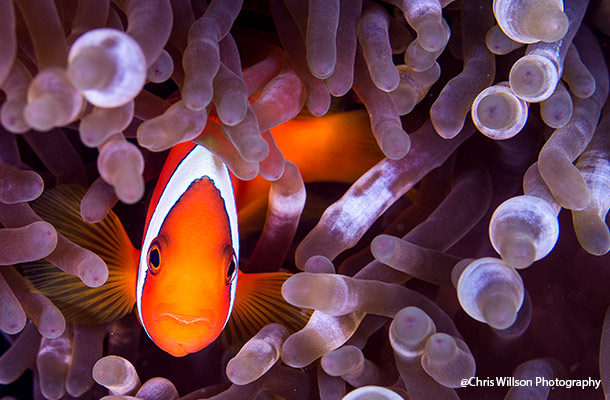
Kerama Islands Diving
Just an hour by ferry from the port in Naha are the Kerama Islands. The Keramas have some of the best diving in Japan, with crystal clear waters, turtles, beautiful hard corals and immaculate beaches to relax on after the dive.
Yaeyama Islands Diving
Ishigaki Island is famous for the idyllic Kabira Bay and the “manta scramble” where during the summer months, manta rays lazily circle coral outcrops on the reef.
Yonaguni is Japan’s westernmost inhabited island, famous for migrating hammerhead sharks during winter and the Yonaguni Monuments. These massive stone structures that are either a natural phenomenon or evidence of a lost civilization.
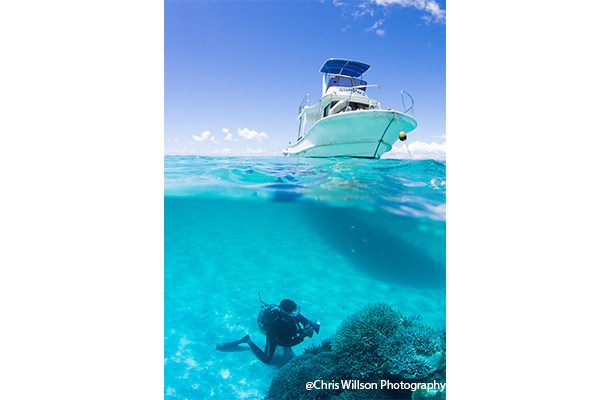
Related articles
Simple and flexible travel insurance
You can buy at home or while traveling, and claim online from anywhere in the world. With 150+ adventure activities covered and 24/7 emergency assistance.
Get a quote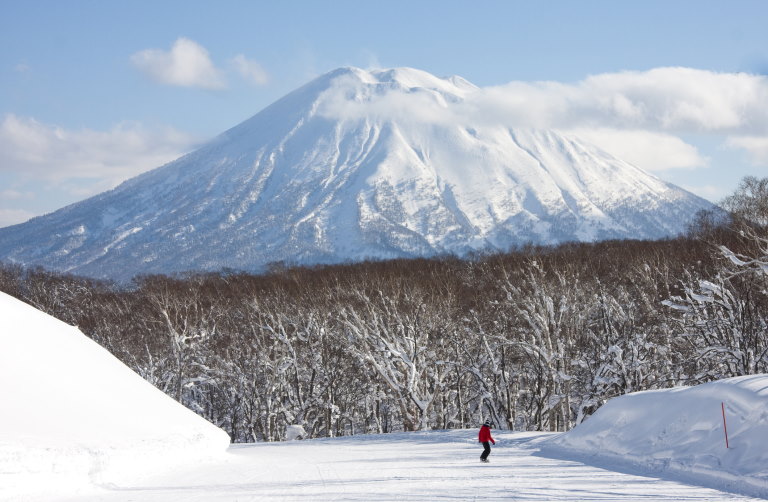
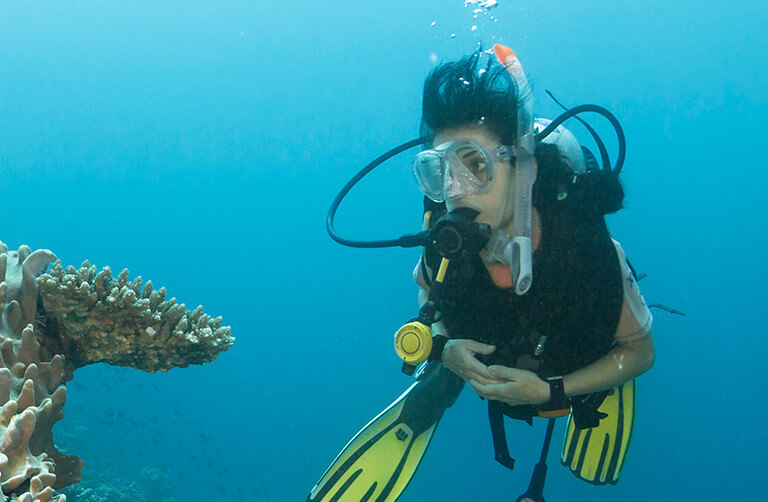
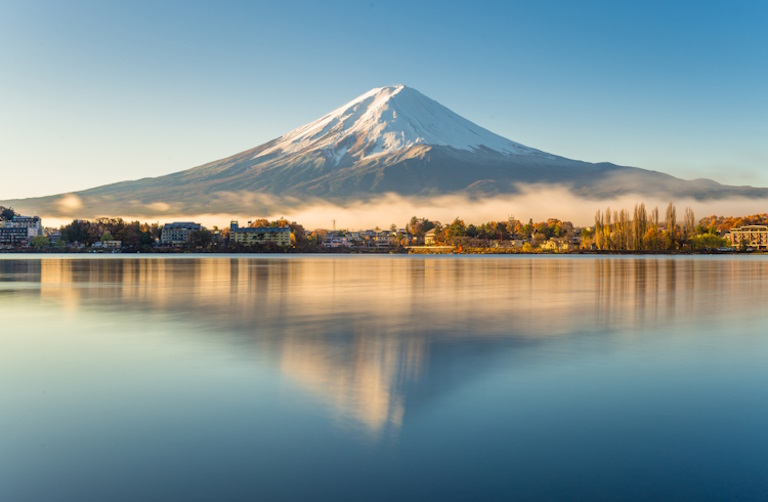
2 Comments
Hello!
I will be doing a solo trip to Japan this April and will be visiting the Okinawa island. Do you have any recommendations for snorkeling tour groups? I have not been snorkeling before so I prefer to be in a group setting rather than be by myself.
Thank you!
Hey Joyce,
Try asking the community here https://answers.worldnomads.com/, hopefully they'll have some great suggestions for tour groups.
Happy travels!